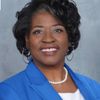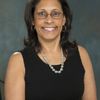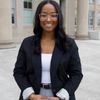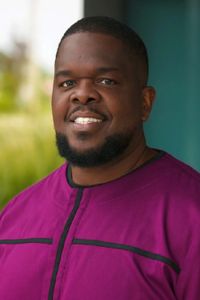Your monthly support provides voters the knowledge they need to make confident decisions at the polls. Donate today.
Jermaine Kennedy
Jermaine Kennedy is running for election for an at-large seat of the Columbus City Schools Board of Education in Ohio. Kennedy is on the ballot in the general election on November 4, 2025. Kennedy advanced from the primary on May 6, 2025.
Kennedy completed Ballotpedia's Candidate Connection survey in 2025. Click here to read the survey answers.
Biography
Jermaine Kennedy earned a bachelor's degree from The Ohio State University in 2003, a graduate degree from the University of Cincinnati in 2007, and a graduate degree from The Ohio State University in 2019. Kennedy's career experience includes working as a chief operating officer. He has been affiliated with The Boys & Girls Clubs of Central Ohio.[1]
Elections
2025
See also: Columbus City Schools, Ohio, elections (2025)
General election
General election for Columbus City Schools school board (3 seats)
The following candidates are running in the general election for Columbus City Schools school board on November 4, 2025.
Candidate | ||
| Patrick Katzenmeyer (Nonpartisan) | ||
 | Jermaine Kennedy (Nonpartisan)  | |
 | Janeece Keyes (Nonpartisan)  | |
 | Mounir Lynch (Nonpartisan)  | |
 | Kimberley Mason (Nonpartisan)  | |
 | Antoinette Miranda (Nonpartisan) | |
 = candidate completed the Ballotpedia Candidate Connection survey. = candidate completed the Ballotpedia Candidate Connection survey. | ||||
| If you are a candidate and would like to tell readers and voters more about why they should vote for you, complete the Ballotpedia Candidate Connection Survey. | ||||
Do you want a spreadsheet of this type of data? Contact our sales team. | ||||
Nonpartisan primary election
Nonpartisan primary for Columbus City Schools school board (3 seats)
The following candidates ran in the primary for Columbus City Schools school board on May 6, 2025.
Candidate | % | Votes | ||
| ✔ |  | Antoinette Miranda (Nonpartisan) | 21.9 | 16,955 |
| ✔ | Patrick Katzenmeyer (Nonpartisan) | 19.1 | 14,760 | |
| ✔ |  | Jermaine Kennedy (Nonpartisan)  | 18.4 | 14,239 |
| ✔ |  | Mounir Lynch (Nonpartisan)  | 7.6 | 5,881 |
| ✔ |  | Janeece Keyes (Nonpartisan)  | 7.2 | 5,556 |
| ✔ |  | Kimberley Mason (Nonpartisan)  | 7.1 | 5,510 |
 | Liz Caslin‐Turner (Nonpartisan) | 6.2 | 4,812 | |
 | Karrie Lumpkin (Nonpartisan) | 4.9 | 3,766 | |
| Teresa Hannah (Nonpartisan) | 4.2 | 3,228 | ||
 | Julie Trabold (Nonpartisan) | 3.4 | 2,646 | |
| Total votes: 77,353 | ||||
 = candidate completed the Ballotpedia Candidate Connection survey. = candidate completed the Ballotpedia Candidate Connection survey. | ||||
| If you are a candidate and would like to tell readers and voters more about why they should vote for you, complete the Ballotpedia Candidate Connection Survey. | ||||
Do you want a spreadsheet of this type of data? Contact our sales team. | ||||
Withdrawn or disqualified candidates
- Ivory Kennedy Jr. (Nonpartisan)
- Yasmine Farah (Nonpartisan)
- Tracey Sigers (Nonpartisan)
Endorsements
Kennedy received the following endorsements. To send us additional endorsements, click here.
Campaign themes
2025
Ballotpedia survey responses
See also: Ballotpedia's Candidate Connection
Jermaine Kennedy completed Ballotpedia's Candidate Connection survey in 2025. The survey questions appear in bold and are followed by Kennedy's responses. Candidates are asked three required questions for this survey, but they may answer additional optional questions as well.
| Collapse all
- Rooted in Community: I’ve spent my life listening to, working with, and advocating for the families of Columbus. As a CCS parent, educator, and youth development leader, I bring the lived experience and relationships necessary to lead with integrity, compassion, and collaboration.
- Focused on Students: Every decision I make centers students—ensuring they have access to high-quality instruction, safe learning environments, and meaningful career pathways that prepare them for success in life, not just the classroom.
- Inspired by Learning: I believe learning should be engaging, innovative, and reflective of the world our students live in. From educator support to inclusive curriculum, I’ll champion a system where curiosity, creativity, and equity are at the core of everything we do.
✅ Career pathways and workforce development, especially for students who have been historically underserved or disconnected.
✅ Mental health and student well-being, because we can’t separate learning from emotional safety and support.
✅ Inclusive education policies, including DEI and protections for LGBTQ+ youth, so every student feels seen, safe, and valued.
I also draw a lot of inspiration from Dr. Martin Luther King Jr.’s “Letter from Birmingham Jail”—particularly his insistence that justice delayed is justice denied, and that moral leadership often means acting when it's unpopular or inconvenient.
I also believe that courage and compassion go hand in hand. We need bold leadership that doesn't shy away from complex problems—but also leadership rooted in care, especially when making decisions that affect young people and families.
My ability to listen deeply, build coalitions, and remain grounded in community values is what sets me apart. I approach leadership with discipline, empathy, and a belief that policy is personal—because behind every data point is a student, a family, an educator who matters. I don’t just lead—I collaborate, and I follow through.
We are stewards of public trust—charged with making sure every child, no matter their background, has access to high-quality education, safe and inclusive learning environments, and real pathways to opportunity. It also means listening to families, uplifting educator voice, and fostering partnerships that bring resources and hope into our schools.
A school board member is a steward of public trust—someone who listens to the community, uplifts the voices of families and educators, and works collaboratively to remove barriers to student success. It's not about micromanaging operations; it's about providing leadership rooted in purpose, integrity, and a deep belief in the potential of our students and schools.
It also includes community members, business leaders, and partners who understand that strong public schools are the foundation of a thriving city. My role is to represent and advocate for all of them—especially those who have historically been unheard or underserved—so that our school district works for everyone.
For our faculty and staff, it means providing the resources, professional development, and respect they need to thrive—especially those serving high-need student populations. And for the community, it means making schools places where trust is rebuilt through transparency, partnership, and shared leadership.
I’ll prioritize working with organizations like the Columbus Urban League, ACLU of Ohio, Somali and Latino community networks, LGBTQ+ advocacy groups, local churchers, and local higher education institutions. I’ll also maintain close communication with teacher unions, student voice coalitions, and frontline staff.
To measure this, we need more than test scores. We must use multiple measures—like student engagement, growth over time, classroom observations, and feedback from students and families—to capture the full picture of instructional impact.
That means deepening our investment in career and technical education (CTE), apprenticeships, and industry-recognized credentialing programs—especially those that begin as early as middle school. Whether students are headed to college, the trades, or entrepreneurship, they should graduate with real options and real-world experience.
I’d also champion innovation in areas like esports, environmental science, digital media, and culturally responsive humanities—fields that tap into students’ interests and prepare them for emerging industries. We should be working hand-in-hand with local unions, higher ed institutions, and business leaders to create meaningful partnerships that bridge school and career.
At the district level, we need transparent, equity-centered budgeting practices that ensure resources are distributed based on student need—not just enrollment numbers. I would also explore partnerships with local businesses, labor unions, and higher education institutions to co-create programs that support career pathways and workforce development.
I prioritize strategies that address the root causes of conflict—like access to mental health services, trauma-informed care, and peer support systems. I also believe in transparent safety protocols that include student, family, and educator voices in their design and implementation.
We also need to build school cultures that reduce stigma and normalize asking for help. That includes regular wellness check-ins, professional development for trauma-informed practices, and expanding community partnerships that bring additional resources into our schools.
I also want to see policy changes that elevate workforce readiness and career pathways starting earlier in a student’s journey. That means expanding partnerships with union apprenticeship programs, local industries, and community colleges.
It also means investing in social-emotional learning, restorative practices, and access to mental health resources—so that students are not only academically prepared but also emotionally grounded. Whether it’s through hands-on career exploration, arts integration, or collaborative problem-solving, our classrooms should spark joy and agency.
Moving forward, I believe we must build a stronger infrastructure for crisis response—one that ensures every student has access to digital tools, every family receives timely, clear information, and every educator is equipped and supported during transitions. We also need to center the social-emotional needs of students and staff in any recovery or emergency planning process. Transparency, equity, and collaboration must guide how we prepare for the future.
I also believe in strengthening the Family Ambassador program, elevating parent voices in school-level decision-making, and creating space for meaningful feedback on policies that directly affect students. Whether through PTA meetings, cultural events, or neighborhood conversations—I’ll show up, listen, and lead with transparency. When parents are respected as partners, our schools become stronger and more accountable to the communities they serve.
First, we must strengthen local educator pipelines through partnerships with teacher prep programs, HBCUs, and grow-your-own initiatives that support aspiring educators from within our community. We should also prioritize mentorship and career pathways for paraprofessionals and support staff who want to advance in the profession.
Second, we need to be intentional about inclusive hiring practices. That means addressing bias in recruitment, creating clear and transparent promotion pathways, and investing in onboarding and retention strategies that help educators thrive—not just survive—in CCS.
Government accountability starts with data-driven decisions, clear communication, and a commitment to listening. As a board member, I would push for accessible budget reporting, community-involved planning, and systems that hold leadership accountable—not just for what gets done, but for how it gets done. Trust is built through openness, and I intend to lead in a way that keeps community trust at the center.
Note: Ballotpedia reserves the right to edit Candidate Connection survey responses. Any edits made by Ballotpedia will be clearly marked with [brackets] for the public. If the candidate disagrees with an edit, he or she may request the full removal of the survey response from Ballotpedia.org. Ballotpedia does not edit or correct typographical errors unless the candidate's campaign requests it.
Other survey responses
Ballotpedia identified the following surveys, interviews, and questionnaires Kennedy completed for other organizations. If you are aware of a link that should be added, email us.
See also
2025 Elections
External links
Footnotes
- ↑ Information submitted to Ballotpedia through the Candidate Connection survey on April 6, 2025







